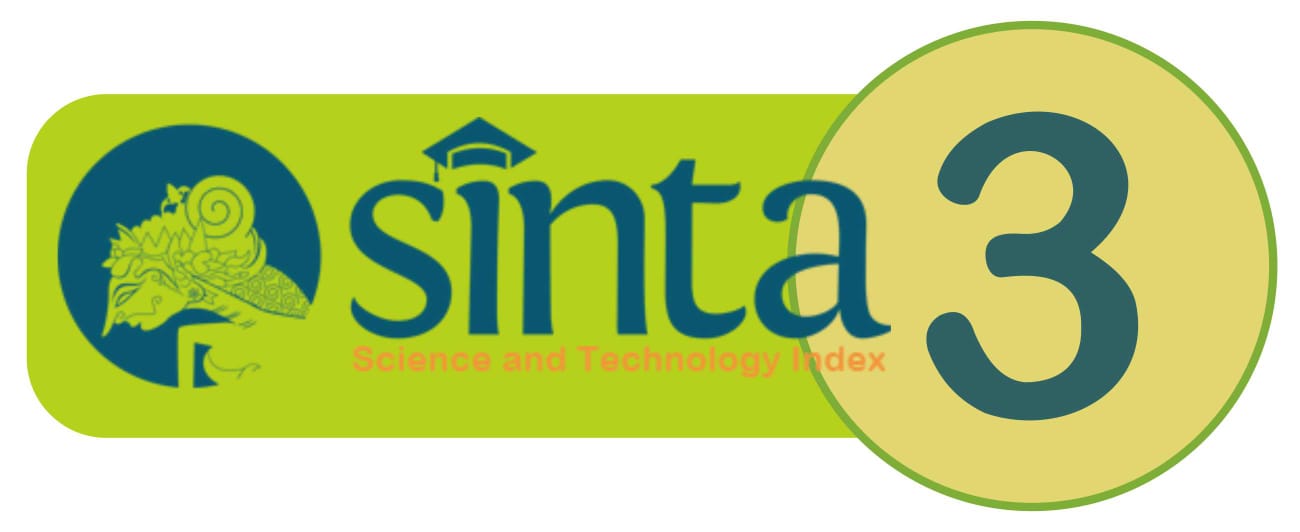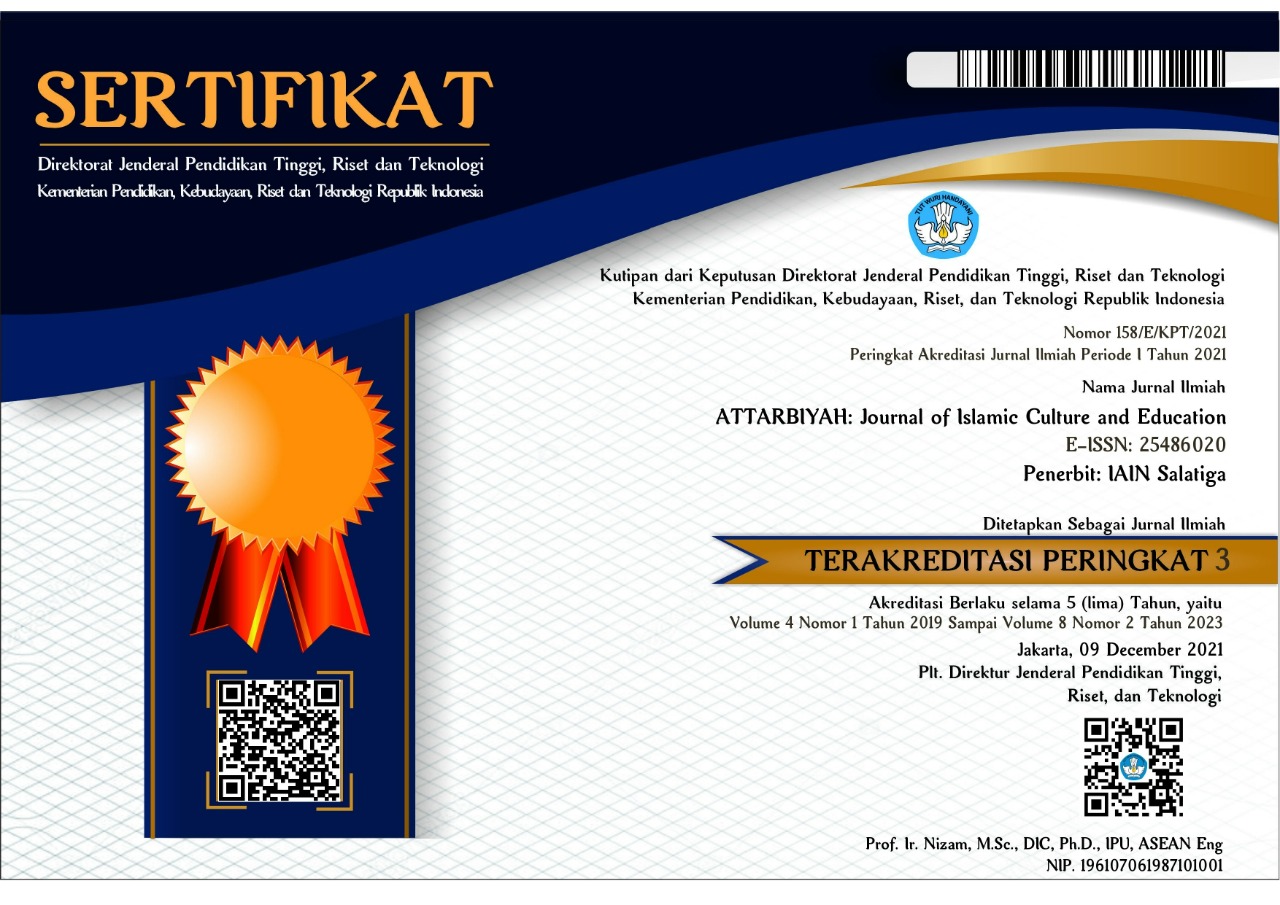Instilling Creative Spirit and Improving Work Ethics through Hypno Spiritual Teaching
Abstract
Keywords
Full Text:
PDFReferences
Adz-Dzakiey, H. B. (2013). Prophetic Intelegence Kecerdasan Kenabian. Yogyakarta: Al Manar.
Arifin. (1991). Ilmu Pendidikan Islam .Jakarta: Bumi Aksara.
Balqis, Putri. (2014) “kompetensi pedagogik guru dalam eningkatkan motivasi belajar siswa pada SMPN 3 Ingin Jaya Kabupaten Aceh Besar”. Jurnal Administrasi Pendidikan Pascasarjana Universitas Syiah Kuala. 2 (1).
Ghannoe. (2010). Buku Pintar NLP. Jakarta : Hash Books
Hajar, I. (2011). Hypno Teaching: Memaksimalkan Hasil Proses Belajar-Mengajar dengan Hipnoterapi, Yogyakarta: Diva Press.
Hakim, A. (2011). Hypnosis in The Teaching: Cara Dahsyat Mendidik dan Mengajar. Jakarta: Visi Media. Hamid, La Ode Muhammad Idrus. (2016). Using Hypnoteaching Technique To Improve The Students’ Vocabulary Mastery. Journal Of English Education. 1 (1).
Hayes, P & Jenny, R. (2006). NLP For The Quantum Change. Terj. Teguh Wahyu Utomo. Yogyakarta: Pustaka Baca.
Hikmawati, E. (2018). The efforts of the students’ discipline in improving learning quality. Jurnal Attarbiyah. 3 (1).
Kasmaja, D. (2017). “The Effectiveness Of The Implementation Of Hypnoteaching Method To Improve Motivation And Mathematics Learning Result Of Class Vii Students At SMP N 41 Bulukumba”. Jurnal Inovasi Pendidikan Matematika. 5 (1).
Langugulung, H. (1995). Manusia dan Pendidikan Suatu Analisa Psikologi dan Pendidikan. Jakarta: PT Al Husna Zikra.
Mansur, M. (2016). “Penerapan Hypnoteaching dalam Peningkatan Mutu Pembelajaran PAI Kelas IV dan V di SDIT Salsabila 2 Klaseman Tahun 2016”. Tesis, UIN Sunan Kalijaga Jogjakarta.
Marganingsih, A. (2016). Penerapan Integrasi Metode Pembelajaran Hypnoteaching & Multiple Intelligence Untuk Meningkatkan Hasil Belajar Mata kuliah Matematika Ekonomi”. STKIP Persada Khatulistiwa Sintang. Jurnal Pendidikan Ekonomi. 3 (1).
Melong, L. J. (2004). Metode Penelitian Kualitatif. Bandung: Remaja Rosda Karya.
Miftakhurozaq. (2018). Metode Hypnoteaching dan Implementasinya dalam Pembelajaran PAI. Ta’allum: Jurnal Pendidikan Islam. 6 (1).
Ministry of Educational and Cultural Affairs (2016). Islamic Education (PAI) Syllabus, Jakarta: Kemendikbud.
Ministry of Religipus Affairs (2007). Alquran dan Terjemahnya dilengkapi dengan Asbabun Nuzul dan Hadis Shahih, Jakarta: Syamil Quran.
Nurindra, Yan, http://hipnotis.net/uncategorized/2-sugesti, accessed at 31 March 2017, 08.30 pm.
Rachman, S. S. (2016). Pengaruh Penerapan Metode Hypnoteaching Terhadap Motivasi Belajar Siswa dalam Pembelajaran PAI di Kelas VII-A dan VII-B SMP Mardi Sunu Surabaya 2016. Thesis. Surabaya: Pascasarjana UIN Surabaya.
Rofi'in, Z. (2018). The Implementation of Islamic Education in Shaping Tolerant Characters in Multicultural Perspective. Jurnal Attarbiyah. 2 (2).
Undang Undang RI No. 23 Tahun 2003 tentang Sistem Pendidikan Nasional.
Wong, W & Andri, H. (2010). Dahsyatnya Hipnosis. Jakarta: Visi media. Yunus, M. (1978). Pendidikan dan Pengajaran, Jakarta: Hidakarya Agung.
DOI: https://doi.org/10.18326/attarbiyah.v3i2.174-204
Refbacks
- There are currently no refbacks.

ATTARBIYAH: Journal of Islamic Culture and Education by http://attarbiyah.iainsalatiga.ac.id/ is licensed under a Creative Commons Attribution-ShareAlike 4.0 International License
----------------------------------------------------------
ATTARBIYAH : Journal of Islamic Culture and Education IAIN SALATIGA p-ISSN: 0215-9996, e-ISSN: 2548-6020



